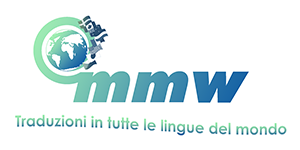Ling’amon’

Ling’amon’ was created by Thomas Maska to be a free flowing script
capable of writing all of his favorite languages. The script is best written
with a calligraphy pen but also works well without one and makes an excellent
shorthand as well. It was based largely on one of his prior conlangs known
as “Scryptic 1”, as well as Ne’ith and
Ancient Egyptian Hieratic.
The name of the script is a play on the Esperanto words “language” (lingvo)
“love” (amo) and “world” (mondo). This is because the script is intended to
reach out to as many different people as possible and to be accessible to as
many languages as possible. There will be updates as more writing systems are
assimilated into Ling’amon’s structure.
Notable features
- Used to write English, Latin, Spanish, Greek, Russian and Esperanto. (More to come).
- The vowel Ijota appears twice because of the frequent use of
[j] in Esperanto. Both the Tehtar version and the non-Tehtar version can
be used at any time- it is the users discretion. - There is no real standard on how to connect the letters, they will often
flow naturally, but sometimes it is necessary to lift one’s pen. - Ling’amon’ is flexible in that it can be used in many ways,
written right to left, up and down and vice-versa. It can also use the
standard English punctuation system as well. - The consonants Sygna and Sxael have initial, medial
and terminal forms. These different forms greatly help the natural flow
of the words. - The Tehtar vowels can be placed for convenience. Usually if the vowel
precedes a consonant then it will rest above, and if it follows it will
be placed below. This makes for outstanding flexibility and allows the
words to be drawn in a more personal and artistic manner.
The Ling’amon’ alphabet
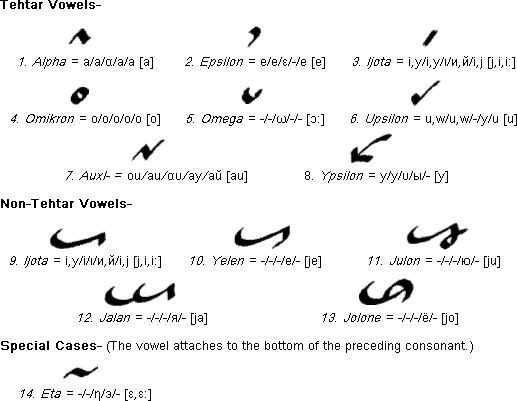
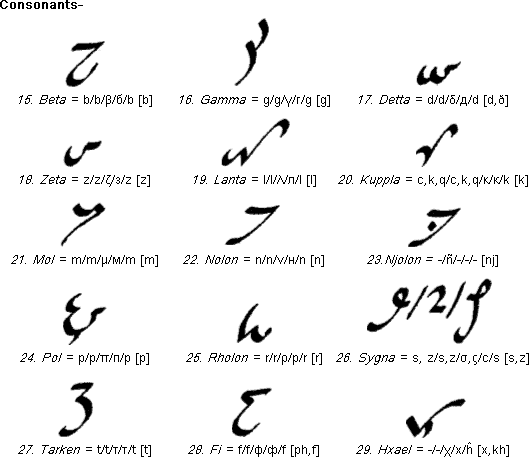
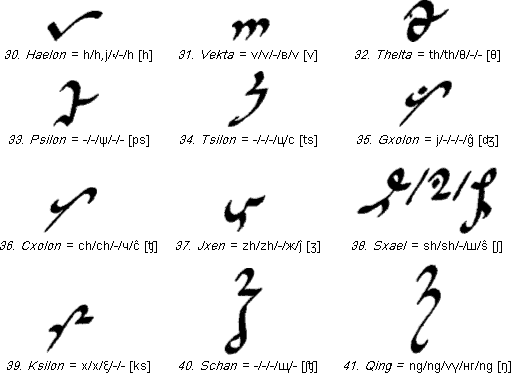
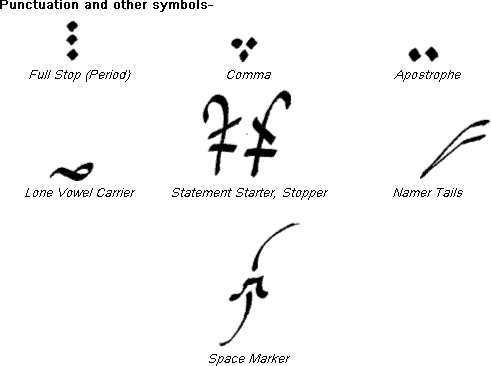
Sample text in the Ling’amon’ script in English
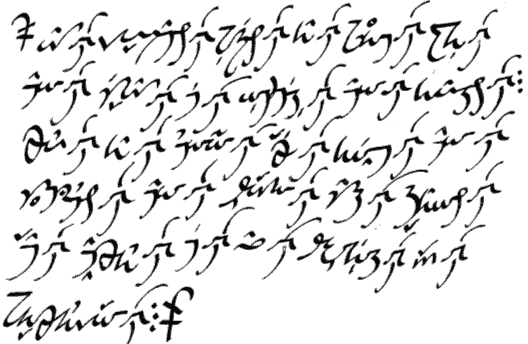
Translation
All human beings are born free and equal in dignity and rights. They
are endowed with reason and conscience and should act towards one another
in a spirit of brotherhood.
(Article 1 of the Universal Declaration of Human Rights)
